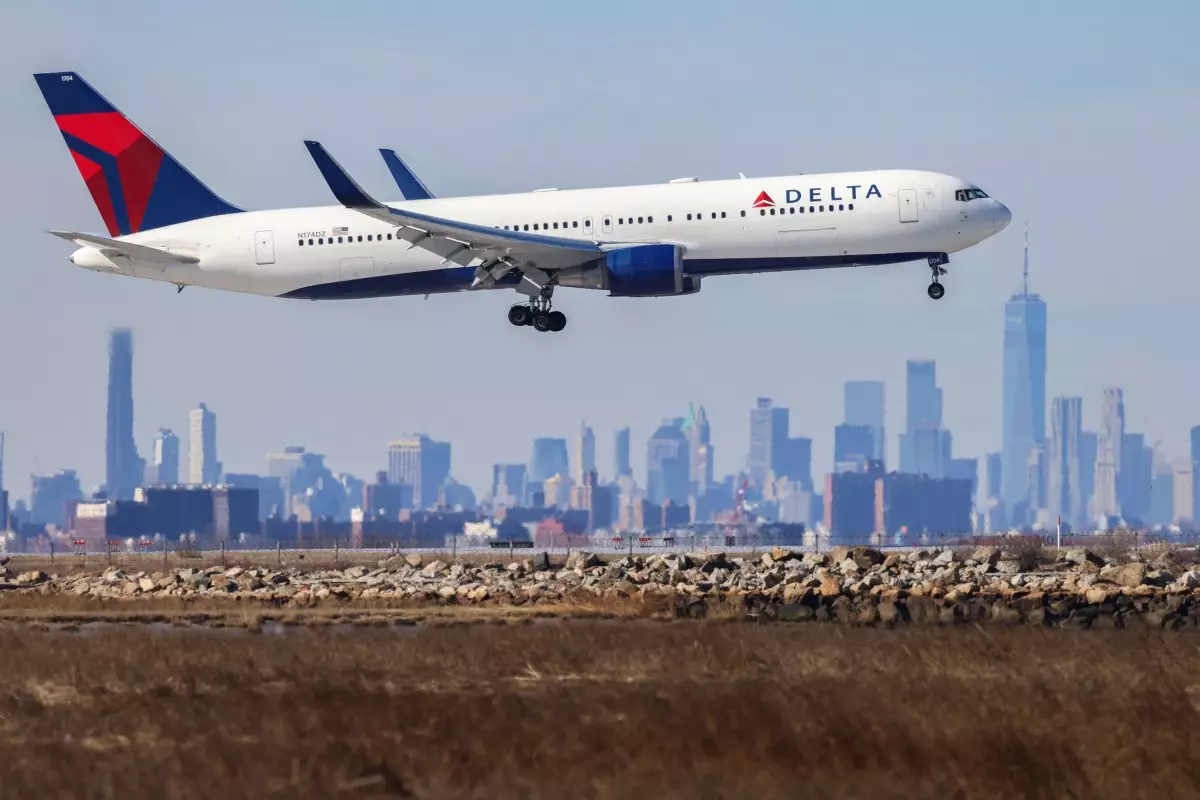CES (Consumer Electronics Show) continues to serve as a prominent platform for unveiling cutting-edge technology across diverse industries. During the 2025 event, Delta Air Lines made headlines once again as it demonstrated an impressive yet somewhat perplexing showcase of new features and initiatives, indicating the airline’s commitment to enhancing the travel experience through technology. However, these advancements prompt a closer examination of their necessity and timing in today’s fast-paced tech landscape.
This year, Delta took a bold step by commandeering the Sphere, a significant venue at CES, to declare its latest innovations. The announcement primarily centered on the introduction of an AI-driven assistant—dubbed Delta Concierge—integrated within the airline’s app, in addition to an updated in-flight entertainment system boasting 4K HDR displays and Bluetooth support. For frequent flyers, the prospect of complimentary access to YouTube Premium and YouTube Music signifies a gesture of goodwill that may enhance the overall in-flight experience.
The Delta Concierge, which is set to be fully operational by the end of the year, enables users to engage via voice or text. While it certainly aligns with contemporary expectations surrounding AI integration, one must ponder whether these advancements genuinely address passenger needs or if they simply cater to perceived demands. Initial features, such as passport expiry notifications and gate directions, feel somewhat pedestrian—almost elementary in this age where mobile devices are ubiquitous.
Entertainment Enhancements: Are They Truly Game-Changing?
The airline’s upgraded in-flight entertainment system, hailed as the “first cloud-based” offering, presents itself as a significant improvement. With 4K HDR QLED displays, Bluetooth options, and a 96-terabyte onboard storage capacity, it promises to deliver a more refined viewing experience. Nevertheless, upon closer analysis, it becomes apparent that Delta’s attempt to position itself as an industry innovator might be a reaction rather than a trendsetter. Competitors, such as United Airlines, are already implementing similar technologies, including Bluetooth connectivity and high-definition screens, raising questions about Delta’s actual advancement rather than mere catching up.
Moreover, the integration of cloud technology into this entertainment ecosystem begs the question: how necessary is it for passengers? While the potential for a more extensive library of content is enticing, frequent fliers might prioritize reliability and system stability over mere connectivity. If a system can deliver high-quality content efficiently, is cloud-based technology essential? Perhaps a more critical perspective could reveal that Delta’s initiative, while commendable, falls short of truly transformative innovation.
Future Aspirations: A Dream Too Far?
Beyond the immediate features, Delta’s announcement about the collaboration with Airbus on the fello’fly project—an initiative aimed at increasing fuel efficiency through synchronized flying—acts as an intriguing point for discussion. The idea of aircraft flying in formation like migrating birds is undoubtedly captivating and taps into broader themes of sustainability in aviation. However, the practicality of such a concept arriving in mainstream operations is questionable. Regulatory hurdles and safety considerations could render the project aspirational at best, suggesting that Delta may be attempting to position itself as a forward-thinking leader while facing significant challenges in executing such a vision.
This ambitious project, while enchanting in concept, exemplifies the broader challenge of implementing theoretical advancements in aviation—especially when juxtaposed against more practical updates directly affecting passengers. As airlines grapple with increasing demands for both comfort and sustainability, the need for realistic, actionable innovations cannot be overstated.
Delta Air Lines’ part in CES 2025 sparked both excitement and skepticism. While the airline is genuinely striving to innovate, many of their recent updates seem to represent an obligation to keep pace with industry peers rather than groundbreaking advancements for travelers. As airlines look to integrate technology more seamlessly into passenger experiences, there remains a necessity for measures that would further elevate the flying experience, moving beyond checks and notifications. The real challenge lies in not just adopting technology, but in ensuring it adds value and enriches the travel journey in meaningful ways. As the aviation industry evolves, it is critical for companies like Delta to focus on delivering impactful innovations rather than simply fulfilling established expectations.

